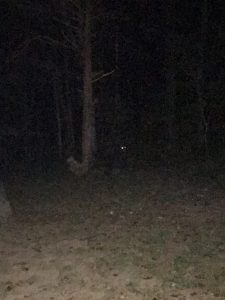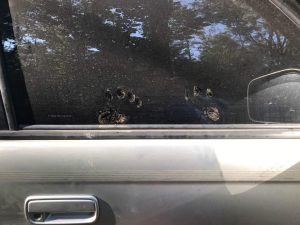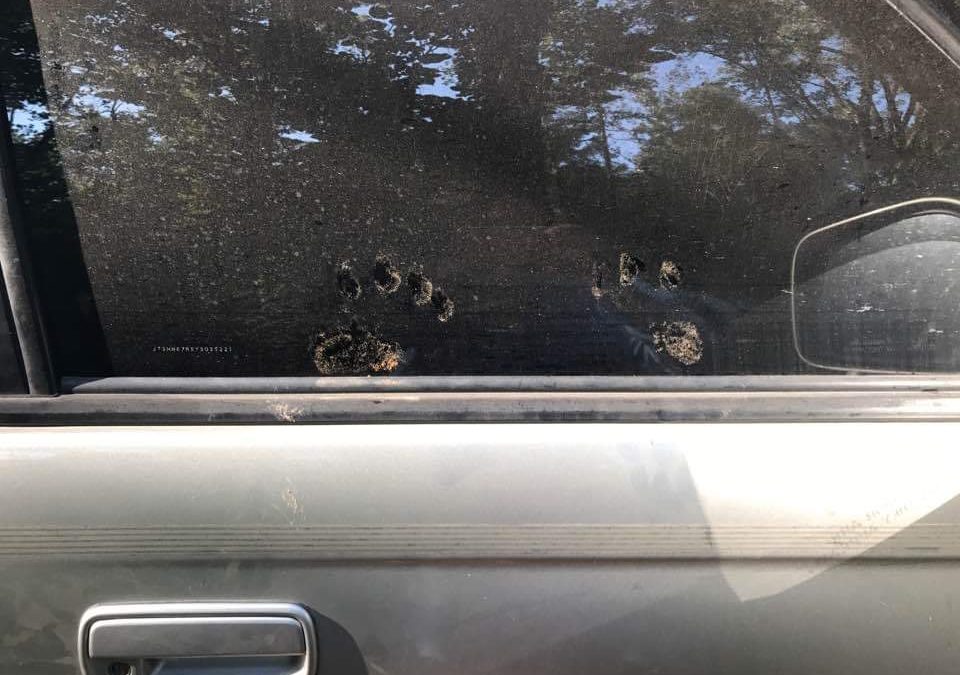1892. That’s the last time a fatal bear attack was recorded in Arkansas – until 2025. Since September of this year we have suffered two tragic losses to families, both human and ursine, along with an unnerving and protracted encounter on the Ozark Highlands Trail. Two black bears have killed someone in Arkansas this year. We may never know why, and there will be enough speculation without our dishonoring the victims and their families by adding to it. Of course we’d like to know if there was anything going on with these bears that might account for their exceptionally unusual choice to resort to predation, and perhaps someday we will. Ultimately though we should want to know something else; how are we responsible?
Let me explain.
When something goes wrong a seemingly never-ending refrain of who’s responsible ensues. It may grow exhausting and prove unhelpful, but it’s a question worth asking. If we determine who’s responsible maybe there’s something we can do to prevent recurrence. So, I’ll ask. When a bear attacks someone at a campsite, who is responsible? The answer – we are. To clarify, by we I mean the collective we; we who engage in outdoor recreation that takes us to campgrounds near and far, primitive and developed; on a trail, on a river bank or in a paved RV site. All these environs and many beside are potential scenes for tragedies such as those that transpired in Franklin County and at Sam’s Throne. Fellow adventurers, we are responsible.
Several years ago I made plans to meet friends at Richland Creek Campground for an early autumn Arkansas weekend. They arrived first and chose a campsite, where I eventually found them watching the fire from inside their vehicle. Immediately after opening my door I learned why.


I could only find two photos, both of them objectively terrible. Richie the Richland Bear wasn’t particularly large. In fact, he was quite small, but that’s irrelevant. The first photo depicts his eyes, and the second – his pawprints. Neither should have been where I photographed them, and they were only there because he had learned Richland Creek Campground was his best bet for grub that was both delicious and easily acquired. He didn’t know his behavior was endangering his life, and potentially the lives of others. He wasn’t responsible. We were.
I canvassed the campground the following morning to warn occupants of our encounter and was met with reactions ranging from feigned concern to amusement to a little boy spreading oatmeal on a rock in an attempt to attract the bear. I explained to his mother why this was not a good idea, and she advised me in no uncertain terms that I should mind my own business. I posited that a bear in the campground was everyone’s business, but she didn’t share my view on the matter. What else could I do?
Indifference is as dangerous as intentional baiting. Every carelessly discarded bag of trash, every half eaten candy bar left unattended on a picnic table is an invitation to a bear to set up shop where it shouldn’t. We are responsible, and we must bear responsibility.
What can we do?
- If you’re in a campground – Deposit trash into bear-resistant receptacles where available. Ensure your camp is clean before going to bed and before leaving. Check the ground for food scraps, wrappers, and anything else that could attract a bear. Take care not to leave anything in the fire ring. Unburned food scraps and wrappers there are just as appealing as those on the ground. Store anything with a smell – including toothpaste and scented products like lotion – in a scent-proof container. Don’t leave food unattended, including in an ice chest. Lock your cooler if that will render it bear-proof, or place heavy objects on it that will rattle if disturbed.
- If you’re backpacking – Store food, toothpaste, electrolyte drink powders, wrappers – anything with a scent – in a bear can or bear sack, such as an Ursak. We carry a Bear Vault bear can. Bear proof storage is not required in Arkansas, but it will be eventually. Besides, it makes life easier in the backcountry, and it’s the right thing to do. At the very least store these items in a scent-proof bag. NyloPro, Opsak and SmellyProof are some of the many options. If possible change clothes before bed. Attacks have been linked directly to clothes worn while cooking, brushing teeth and other camp chores then worn to bed. Police the area – including the fire ring – for attractive morsels before turning in for the night.
- If you’re float camping – Carry a barrel for your food and trash. Secure your cooler with a lock or the aforementioned cooler alarm with pots, pans, rocks and other things available in camp. Again, before turning in (or succumbing to a cobbler and bourbon induced stupor) ensure you’ve disposed of or sufficiently packed away anything that could prove enticing to a bear (or mini-bear AKA raccoon).
- Wherever you’re camping – Don’t forget to put away the dog food!
I don’t know what became of Richie. I mean, I do, but I never received any kind of follow-up from my Monday morning call to the USFS district office. I’d like to think they relocated him, and maybe they did. That seems unlikely though given his willful disregard for the things that are usually known to dissuade a bear from human contact, namely human contact. In his case even shouting, wild gesticulation and all the things we’re told will encourage a bear to move on proved unsuccessful, so I suspect he was destroyed. We are responsible.
Fellow adventurers, in those drowsy hours by the fire do your musings eventually drift to bears? Mine do. Do you wonder whether there’s one out there, and if so what you would do in the event of an encounter? I did. Now instead I assume there’s one out there and think about what I must do to prevent an encounter. It’s their home, not ours. We are just visiting, and as such it is incumbent upon us to behave ethically. If we’re unwilling or unable to commit to these ethics we have no business visiting. We are responsible.
See you out there!
Deuce
- Bears and Bearing Responsibility - October 6, 2025
- Kayaks 101 - August 6, 2023
- Just the Place – Lower Buffalo River - September 20, 2022




